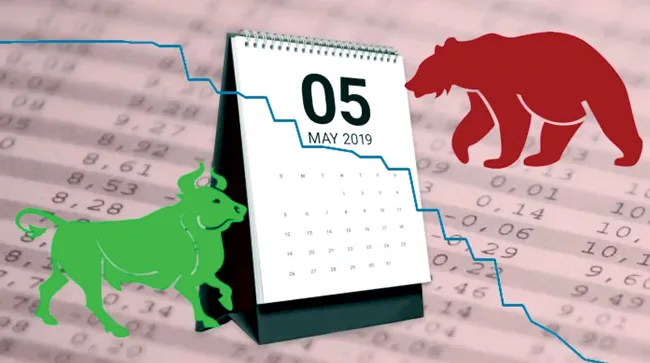
Common assumption
When it comes to proving regularities, it is easier to look into the past. In the stock market, there is a common assumption that what was true in the past is likely to be true in the future. The method of analysing the stock market is determined based on this assumption.
As for the VN-Index, the term "Sell in May" is more representative of the general market declining in the month of May. On the contrary, in Vietnam, in May 2021, the index increased by 3.1%. In May 2020, the index increased by 12.4%. In May 2019, the index decreased by 3%. In May 2018, the index decreased by 7.5%. In May 2017, the index increased by 2.8%. In May 2016, the index increased by 3.4%. In May 2015, the index increased by 1.3%. In May 2014, the index fell 2.8%. In May 2013, the index increased by 9.2%. In May 2012, the index fell 9.4%. In May 2011, the index fell 12.2%. In May 2010, the index fell 6.4%. In May 2009, the index increased by 28%. In May 2008, the index fell 20.7%. In May 2007, the index increased 17.1%. In May 2006, the index decreased by 9.5%. However, before 2006, the market was too small to warrant regularity.
Therefore, in the last 16 years, for eight years the VN-Index increased in the month of May. From a probability perspective, there is a 50% chance that the index will increase in May. There is no seeming rationale to say that Vietnam's stock market usually decreases or increases in May. The term "Sell in May" is an imported term from outside our country, and has no specific relation to selling stocks in the month of May. It is an English adage that had nothing to do with the stock market, but more likely a term used to avoid working during the hotter months of the year that would be more suitable for going on a holiday. Over the years the term has been applied by investors when dealing with trading on the stock market. In actual fact it has no bearing on selling stocks in May or that the stock market will fall in the month of May.
The Stock Trader's Almanac explains that a "Sell in May" trading strategy is meant to diversify investment assets so as to avoid a cycle of worse than average growth. So, if you only understand the literal meaning of the term, that you should sell stocks in May. On the other hand, probable statistics are a less reliable indicator, since survey changes over time. Market cycle on the other hand, is more than simply calculating monthly index gains and losses. In a long-term strong growth cycle, it can be two to three years in a row that the market increases in May and vice versa. The most recent was the 2016 to 2017 bull cycle in May of these two years, when the market increased, and even the general uptrend lasted for many consecutive months. So if you look at it from the perspective of a theory, such as Dow theory or Elliott wave theory, it is completely irrelevant to the "Sell in May" factor.
Efficient trading
If we understand more closely, the term "Sell in May" has certain application in transactions on the Vietnamese stock market. The first is the school of long-term or short-term investing. The long-term school of investment plays a role in determining whether selling in May should be of interest. For an investor who holds a stock year after year, without even looking at the dashboard, short-term fluctuation of a few months is meaningless and not applicable to "Sell in May" theory.
Second, the “Sell in May” term if we understand it correctly, does not mean to sell out the stock in May and leave the market. The more reasonable meaning is that investors should consider whether the investment opportunity is worth it, or as the strategy explains in the Stock Trader's Almanac, should consider going down if the average profit opportunity doesn't beat the 12-month savings rate. This is important for short-term speculators, who usually only hold a certain stock for a few weeks to a few months and the speculation needs to grow, not bury capital in place and of course not lose money, turning into a reluctant long-term investment.
Under normal market conditions, April and early May often have supportive factors related to Q1 annual business results. Therefore, stock prices often increase early due to information speculation. When the market enters the second half of May, the information factor weakens, stock prices rise well, investors can take profits because the initial purpose is short-term speculation.
As we understand the term "Sell in May", we tend to remember stock speculators. It would refer to stocks, not the index. The statistics of VN-Index increasing or decreasing during the month of May does not make any sense. For example, from April to 20 May, statistics of 259 stocks belonging to three main groups, VN30, Midcap, and Smallcap (the VNAllshare basket) on the HSX, saw a vast majority of stocks peak. It was in April or early May and in the last week that prices have been falling. Statistics show that upto 157 out of 259 stocks have decreased from peak of 10% or more, and the rate is now about 61%. If the loss is reduced to 5%, the number will jump to 198 stocks, a rate of about 76%. If the loss is from 3%, the rate that many speculators cringe at, then the number rises to 218 stocks, equivalent to more than 84%.




















